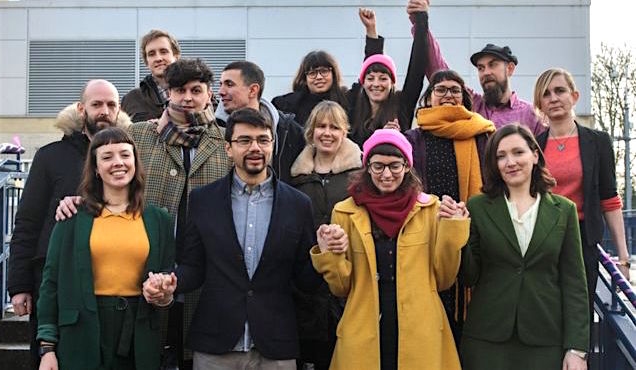As the Stansted 15 Avoid Jail, The “Hostile Environment” Continues with Disgraceful New Windrush Flight to Jamaica
 Please support my work as a reader-funded journalist! I’m currently trying to raise $2500 (£2000) to support my writing and campaigning on Guantánamo and related issues over the next three months of the Trump administration. If you can help, please click on the button below to donate via PayPal.
Please support my work as a reader-funded journalist! I’m currently trying to raise $2500 (£2000) to support my writing and campaigning on Guantánamo and related issues over the next three months of the Trump administration. If you can help, please click on the button below to donate via PayPal.
So there was good news on Wednesday, as the Stansted 15 — activists who prevented a deportation flight from leaving Stansted Airport for west Africa in March 2017 — avoided jail. Three received suspended sentences (with two also receiving 250 hours of community service, with 100 hours for the third), eleven others were given 100 hours of community service, while the 15th “received a 12-month community order with 20 days of rehabilitation”, as the Guardian described it.
However, two troubling aspects of the story remain significant. The first is that the protestors were convicted on charges of terrorism, and, alarmingly, that conviction still stands. As Ash Sardar wrote for the Independent, “Rather than being convicted of aggravated trespass, as other protesters who committed similar offences had been in 2016, the Stansted 15 had an initial trespass charge changed four months into their bail to a charge of ‘endangering safety at aerodromes’ – a scheduled terrorist offence, which potentially carries a life sentence.” The 2016 protest, at Heathrow Airport, against proposals for the airport’s expansion, involved three protestors who were part of the later actions at Stansted — the three who received the suspended sentences.
Continuing with her analysis of the sentencing in the Independent, Ash Sardar added, “This particular bit of legislation – from the Aviation and Maritime Security Act 1990, if anyone’s interested – was brought in after the Lockerbie bombing of 1988. Its application in a protest case is completely unprecedented in English courts. You might not agree with the actions of the Stansted 15, but this punitive and misguided use of legislation to criminalise protesters should have you worried regardless.” Read the rest of this entry »
Why the Conviction of the Stansted 15, on Terrorism-Related Charges, Must Be Overturned
 Please support my work as a reader-funded investigative journalist, commentator and activist. If you can help, please click on the button below to donate via PayPal.
Please support my work as a reader-funded investigative journalist, commentator and activist. If you can help, please click on the button below to donate via PayPal.
As someone who has spent the last 13 years working to end imprisonment without charge or trial at Guantánamo, it has always been chilling to see these institutional crimes echoed in the UK. Under Tony Blair, foreign-born, alleged terror suspects were held without charge or trial on the basis of secret evidence, while other foreign nationals, and British nationals too, also regarded as terror suspects, were subjected to a form of house arrest, also on the basis of secret evidence, under what were known as “control orders.”
Unfortunately, throughout this period, the use of immigration detention was also on the rise. As the Guardian explained in an article in October based on a survey of its history, “The power to detain was created in the 1971 Immigration Act – however, it was not until the Labour government under Tony Blair that the detention estate expanded to become what it is today. In 2000, detention centres could hold 475 people, with another 200 or so held under immigration powers in prisons. Capacity has now expanded to about 3,500 spaces.”
The Guardian article noted that “[m]ore than 27,000 people were detained in 2017, according to the most recent figures”, adding, “Detention is now a significant part of the UK’s immigration enforcement efforts, but locking up immigrants without a time limit is a relatively recent phenomenon.” Read the rest of this entry »












 Who's still at Guantánamo?
Who's still at Guantánamo?
